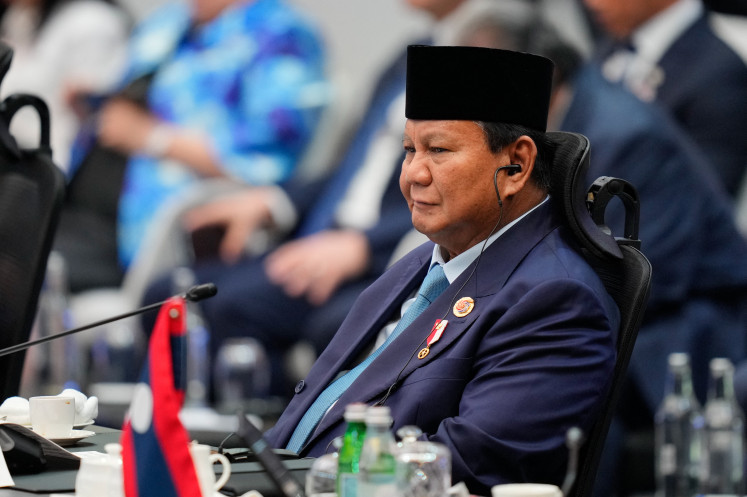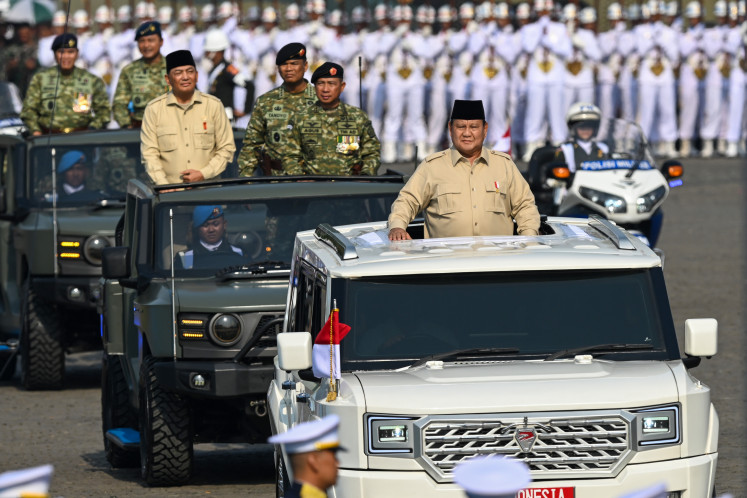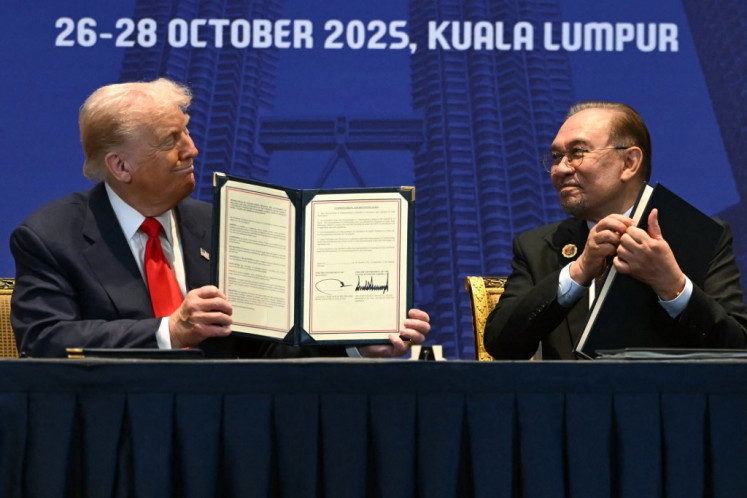Popular Reads
Top Results
Can't find what you're looking for?
View all search resultsPopular Reads
Top Results
Can't find what you're looking for?
View all search resultsCourt allows voters without e-ID cards to vote in election
Eligible voters without electronic ID (e-ID) cards are now allowed to cast their ballots in the April election, as long as they have registered their data with the government, the Constitutional Court said Thursday
Change text size
Gift Premium Articles
to Anyone
E
ligible voters without electronic ID (e-ID) cards are now allowed to cast their ballots in the April election, as long as they have registered their data with the government, the Constitutional Court said Thursday.
The nine-panel bench ruled that Indonesians aged 17 and above — the eligible age to participate in elections — who have yet to get their e-ID cards could bring suket (recommendation letters) as alternative identification to the polling stations on April 17.
The court granted in part a judicial review petition challenging Article 348 (9) of the 2017 Elections Law, which stipulates that eligible voters are required to bring e-ID cards to cast their votes in the election.
Justice I Dewa Gede Palguna acknowledged that not all eligible voters owned e-ID cards, given that the process of registration to obtain the e-ID cards was still ongoing in all regions across the country.
“If casting a ballot requires only e-ID cards, citizens who are still processing their citizenship data registration could lose their voting right,” Palguna said, “In order to protect their rights, [eligible voters] are also allowed to bring recommendation letters.”
The letters, issued by the Home Ministry’s Directorate General for Population and Civil Registration (Dukcapil) through its local agencies, were to prove they had registered for the e-ID card, he said.
The judicial review was filed by five petitioners, including former General Elections Commission (KPU) member Hadar Nafis Gumay and election watchdog the Association for Elections and Democracy (Perludem).
The plaintiffs initially requested that the court allow Indonesian citizens who did not have an e-ID card to use their identity card, passport or driver’s license as evidence to participate in the election, because not everyone had recorded their data or received an e-ID card.
The request was in line with the court’s ruling in 2009, which allows citizens to use their ID card or passport to be able to cast their ballot in the 2009 presidential election.
However, Palguna argued that 10 years ago the citizenship data were not yet integrated with election-related data, while today, data integration was required. Besides, the e-ID card was the official identity card recognized by the Elections Law, he said.
“Thus we remind the government to speed up the e-ID registration process for citizens who have yet to record their data, especially those who are eligible to participate in the election, before voting day,” Palguna said.
The KPU’s latest final voter list shows that there are 192.83 million eligible voters. Of that number, some 188 million have recorded their data for e-ID cards.
However, Dukcapil’s data show that some 4.2 million eligible voters have yet to register their data to obtain an e-ID card, which could strip them of their voting right in the upcoming elections.
The e-ID program was launched in August 2011, but problems in its distribution and registration process persist, especially as the program was marred by a corruption case surrounding the procurement of the cards.
After the court’s ruling, it was important for Dukcapil to make more efforts to ensure the voting rights of millions of voters who had yet to record their data for e-ID cards, Perludem director Titi Anggraini said.
“We have to ensure that they at least receive recommendation letters so that they will be able to vote in the election,” she said.
Dukcapil director general Zudan Arif Fakrulloh said his office had been and would continue to be active in approaching citizens to register their data, including in schools, pesantren (Islamic boarding schools) and orphanages, in regions across the country.
“However, we also call on citizens who are able to come to Dukcapil’s local agencies for data registration,” Zudan said.
On Thursday, the Constitutional Court also granted a petition to give more time for some specific eligible voters who could not go to the polling station in their registered home address to change their polling booth location.
Article 210 (1) stipulates that voters can change their voting location at the latest 30 days before voting day.
Chief Justice Anwar Usman said the court allowed the deadline to be extended to seven days before April 17, but only for voters who were ill, affected by natural disasters, imprisoned or who had to work on election day.










